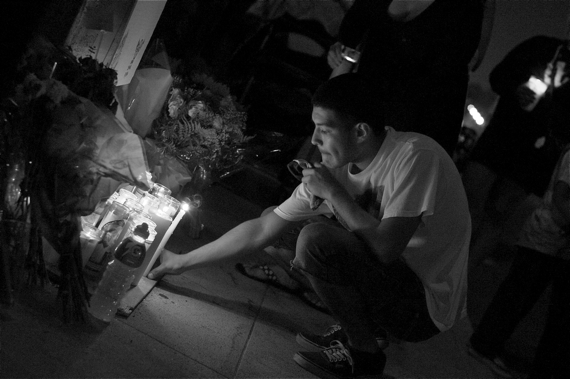
In the last hours before the deadline for signing legislation from this year's legislative session, California Governor Jerry Brown vetoed a batch of bills that could have improved safety for bicyclists, pedestrians, and other road users.
Included in the list of today's vetoes are three bills addressing the problem of hit-and-run crimes. Two of them would have increased penalties for convictions, and one would have made it easier to catch hit-and-run perpetrators. This brings to a total of four bills on the issue that passed both houses of the legislature with very few no votes—some unanimously—only to end up on the governor's chopping block.
The governor's general objection to creating new crime categories and increasing penalties was his excuse for declining these bills.
For similar reasons, Brown also vetoed Assemblymember Mark Levine's “vulnerable user” bill that would have defined bicyclists and pedestrians, and a few other groups, as a special category of road users, and raised fines for conviction of violations that result in injury to them.
Another bill vetoed today was one that would have assessed a violation point against a driver's record if convicted of using a cell phone or texting while driving. A second provision of the bill, requiring the Department of Motor Vehicles to include at least one question on the driver's license exam addressing the dangers of distracted driving, may happen anyway. Brown, in his veto message [PDF], writes that he has directed the DMV to add such a question.
Here's a full list of bills that would have made the roads safer that were axed by the Governor:
- Assembly Bill 2337, from Assemblymember Eric Linder (R-Corona), which would have increased the automatic driver's license suspension for a hit-and-run conviction from one to two years. Governor Brown vetoed this bill last week, writing that he thought current penalties seemed appropriate—thus hinting that he would be likely to veto the others as well.
- A.B. 1532, from Assemblymember Mike Gatto (D-Los Angeles), which would have required an automatic six-month license suspension for anyone convicted of a hit-and-run collision in which a person was hit, whether that person was injured or not. Assemblymember Gatto's intent was to enforce the notion that people must stop when they are involved in a crash, no matter what. The governor disagreed, citing his usual reluctance to create new categories of crime and stiffen penalties. “I don't find sufficient justification for creating a new crime when no injury to person or property occurred. I think the current law is adequate,” says his veto message [PDF].
- A.B. 47, also from Gatto, which would have created a new “Yellow Alert” system, similar to the existing Amber Alert that broadcasts information about child abductions quickly throughout the state. The Yellow Alert would have broadcast descriptions of vehicles suspected of being involved in hit-and-run crimes using freeway changeable message signs and other outlets to help law enforcement apprehend criminals who leave the scene of a collision. Governor Brown refused to sign this bill because of another bill, which he did sign, that adds developmentally disabled people to the groups for which the Amber Alert system can be used. “This expansion should be tested before adding more categories of individuals that could overload the system,” he wrote [PDF]. It's doubtful that the families and friends of hit-and-run victims would agree that this wait-and-see approach is sensible.
- A.B. 2673, from Assemblymember Steven Bradford (D-Gardena), which would have removed the possibility of a civil compromise in the case of a hit-and-run conviction. Assemblymember Bradford wanted to remove this loophole that allows people with expensive lawyers to get off the hook for criminal prosecution if they make up with the injured party. Governor Brown's concern, according to his veto message [PDF], is the backlog of court cases in the state, with this law removing a “means for parties to settle their disputes outside the criminal court system.”
- A.B. 2398, from Mark Levine (D-San Rafael), which would have raised fines for violations when certain “vulnerable road users,” including bicyclists and pedestrians, were injured as a result of the violation. Brown's veto message reads: “I think the current laws are sufficient.” [PDF]
- A.B. 1646, from Assemblymember Jim Frazier (D-Oakley), which would have added a point to a driver's record for using a cell phone or texting while driving. The governor, yet again, disagreed that the bill was necessary to curb cell phone use and texting while driving [PDF]. He would rather wait until the DMV finishes an analysis of its data on distracted driving than enact this safety measure.
Email tips, alerts, press releases, ideas, etc. about transportation in California to melanie@streetsblog.org.
For social media coverage focused on state-wide issues, follow Melanie @currymel on Twitter or like our Facebook page here.





